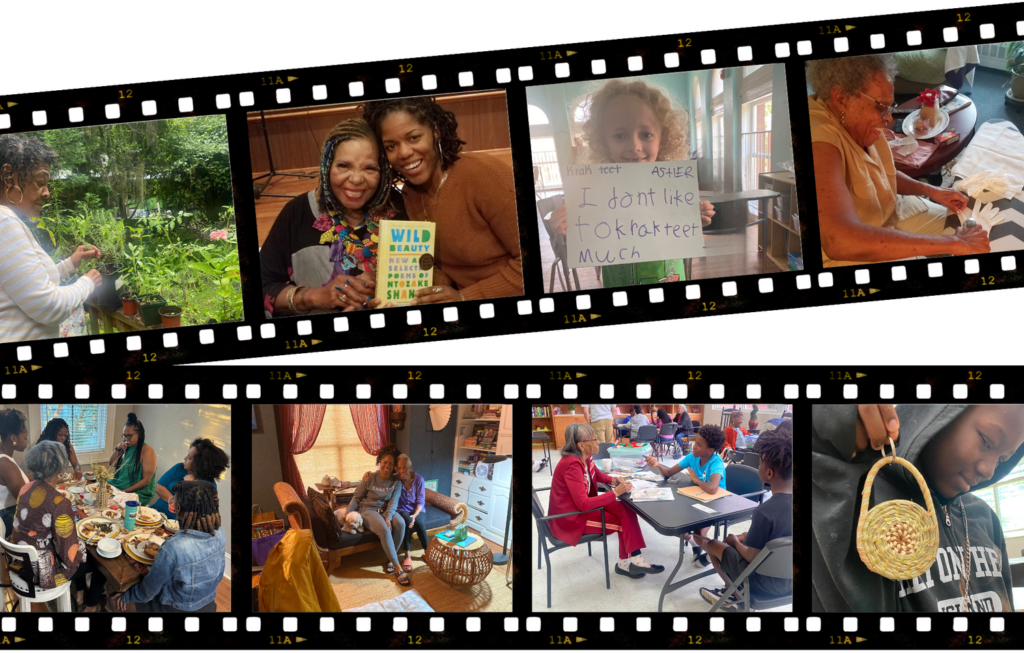About Krak Teet
- Home
- / About Krak Teet
Krak Teet is Geechee and means “to speak.”
“Remembering will free us.”* That drives our work. The answer to our problems is in our past. That’s why we love the West African concept of Sankofa, which means to “go back and get it.” History is not just fun facts; it’s a roadmap. It teaches us how to stretch a dollar and even survive with no money, community stewardship, environmental stewardship, eating local and fresh, reusing instead of wasting, etc. We share these lessons with our community in the Krak Teet Corner of Impact Magazine, on our TikTok, Instagram, and Facebook pages, in our newsletters and blog posts, and in-person gatherings.
Textbooks and television ain’t been handling our history right, so our favorite way of learning about “back then” is by interviewing elders, artists, and healers. That’s why we partnered with the Moses Jackson Community Center in West Savannah’s annual summer camp to introduce our oral history program which gives middle school students the tools and the opportunity to interview elders and engage with local artists and healers, gaining firsthand insights into their rich cultural heritage. Through community engagements since 2013, we’ve worked with more than 1,600 young people.
We’re a community of storytellers across the African Diaspora, most especially in the Gullah Geechee Corridor, getting people to tell stories. Sharing stories shows us how much we have in common. This awareness of a shared past, knowing #WeAllCousins, builds respect. Respect is needed to care about and even trust each other. Being in community is how we flourish—inside and out. That requires respect, care, and trust. So those are also our leading values.

Krak Teet was started by Trelani Michelle, a Multicultural Southern Storyteller, from Monroe, Louisiana, New Orleans, and Savannah, Georgia. With more than 12 years of experience writing memoirs and self-help guides, she has dedicated her career to amplifying underrepresented voices and preserving the cultural traditions across the African Diaspora through storytelling, performance, oral history, and education.
Trelani describes Krak Teet as a bridge. We connect communities of practice, communities of place, and different generations, and it works! One of our students wrote that interviewing elders boosted his confidence and made him less afraid to talk to people. For our elders, interacting with curious young people energizes them. It makes them feel valued and respected for their wisdom and their experiences.
The only thing constant is change, and change is unfolding faster than ever these days. So it’s important to remember what will help us survive and even thrive through the changes, and that’s exactly what Krak Teet is outchea doing—providing safe spaces to remember.
*Quote by Nubia Lateefa of The People’s Porch

